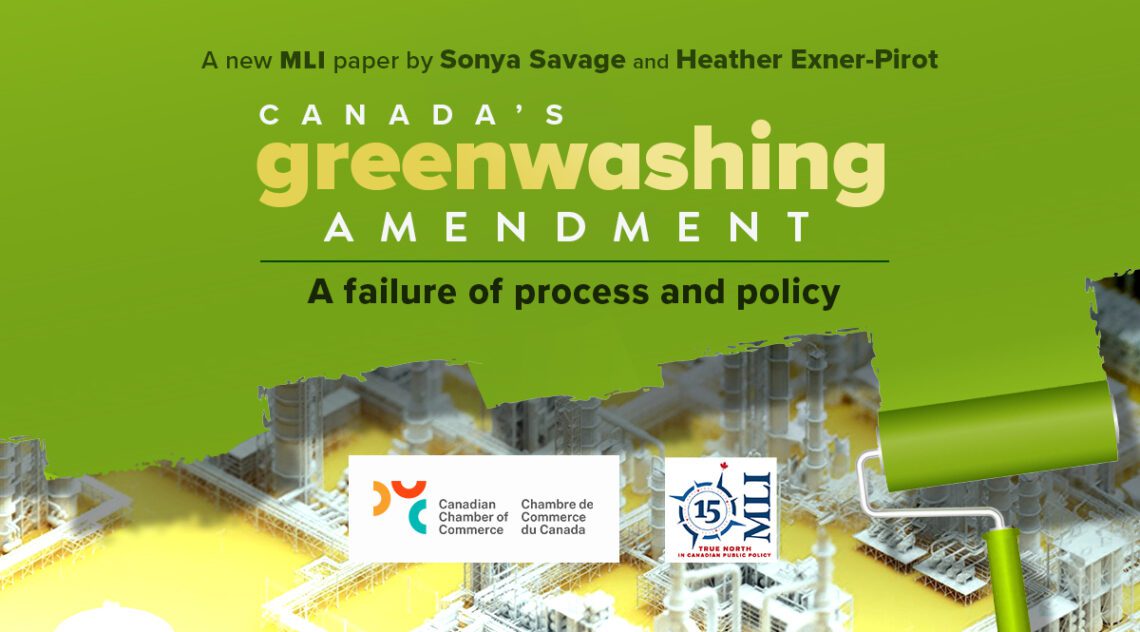OTTAWA, ON (February 26, 2025):
An amendment to Bill C-59 last Spring turned Canada’s Competition Act into a weapon against businesses, silencing legitimate communication of environmental goals and stifling innovation.
A new report from former Alberta Minister of Energy, Environment and Justice Sonya Savage and Heather Exner-Pirot, director of Energy, Natural Resources, and Environment at the Macdonald-Laurier Institute describes how the amendment came about – and its subsequent fallout. It explains how such a consequential and controversial legislative change could be made without due process or input from Canadians. The report is jointly presented by the Net-Zero Council at the Canadian Chamber of Commerce and the Macdonald-Laurier Institute.
The amendment to Bill C-59, introduced without consultation or debate, aims to crack down on “greenwashing” – the practice of making misleading environmental claims. But instead of targeting false advertising of consumer products, the new law applies to all corporate communications, including sustainability reports, investor disclosures, and public policy advocacy. Now, any statement about a company’s environmental performance must be substantiated using an undefined “internationally recognized methodology,” with the burden of proof placed entirely on businesses.
“The late-stage amendment had a dramatic silencing effect on many businesses and associations across the country that want to communicate their environmental achievements and goals,” write Savage and Exner-Pirot. “We recommend that the amendment be repealed in its entirety.”
The report details the immediate fallout, including Pathways Alliance – a consortium of oilsands companies – scrubbing its entire website due to legal uncertainty. Other businesses across sectors, from agriculture to clean tech, have also limited their environmental communications, fearing financial penalties and litigation. Even Environment and Climate Change Canada has cautioned that the amendment discourages companies from setting voluntary net-zero targets.
The law’s reverse onus means that businesses are guilty until proven innocent, and creates massive financial risks with fines of up to $10 million or 3 per cent of global revenue. Worse, as of June 2025, activists, competitors, and even disgruntled employees will be able to launch complaints under the law – a recipe for frivolous complaints.
Canada’s approach is now more punitive and vague than greenwashing regulations in the UK, EU, US, and Australia. Other jurisdictions provide guidance-based compliance frameworks, while Canada has opted for severe penalties, legal uncertainty, and a silencing effect on climate disclosures.
“The C-59 greenwashing amendment is a perfect example of how not to advance climate goals,” the authors conclude.
Without urgent legislative correction, Canada’s greenwashing provisions will continue to undermine business confidence, chill climate discourse, and weaken the country’s ability to attract investment in emissions-reducing technologies.
To learn more, read the full paper here:
For further information, media are invited to contact:
Dagny Pawlak-Loerchner
Senior Communications Officer
613-482-8327 x113
dagny.pawlak-loerchner@macdonaldlaurier.ca
Stay informed on developments in the Canada-US policy space by visiting: https://cnaps.org







